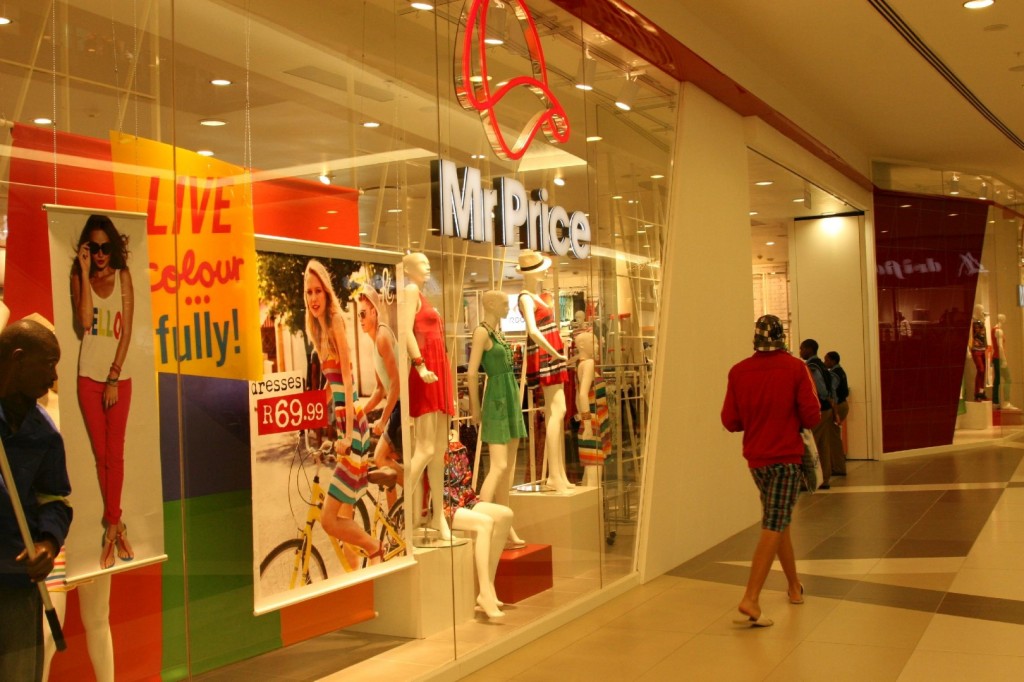Value apparel group Mr Price, synonymous with being a cash-based retailer until a few years ago, saw credit sales grow faster than cash sales in its past financial year as consumers crumble under immense financial pressure.
Along the way, it has incurred “a little more bad debt”, said Mark Stirton, Mr Price’s CFO, who gave an overview of the company’s financial performance for the year to 1 April 2023 on Thursday.
During the year, the retailer’s credit sales, which contributed 12.7% to total sales, rose 8.3% leading to a loan book worth R2.5 billion – a small and manageable book in its view.
“[Credit sales] obviously grew faster than our cash sales and while it did [see us] incur a little bit more bad debt than we would have liked, it was an important growth channel for sales for us,” Stirton said.
With inflation and interest rate pressures persisting and eating away at disposable income, consumers are backing off from clothing purchases to prioritise absolute necessities such as food and transport.
These factors hit Mr Price’s core cost-sensitive customers, skewed towards the low to middle-income end of the wage spectrum.
Impact
The retailer reported a profit decline of 6%, leading to headline earnings per share of 1 205.7 cents, down from 1 282.1 cents in the prior year.
CEO Mark Blair said credit sales growth was largely in line with the rest of the fashion retail industry, where credit has been fuelling the system over the past 12 months and resulted, in Mr Price’s case, in a surge in credit applications of 30.9%
“We’ve always been known as a cash-based retailer, [with a] very cautious approach to credit. In the second half of this financial year, our credit growth was about half of the industry’s growth rate and we were very comfortable with that,” he said.
Read:
Consumers use costly credit to make ends meet – FirstRand
Lewis profits flat, credit sales up nearly 20%
Clothing accounts, new expenses drive SA youth’s entry into credit market
But the prevailing economic conditions, which were more evident during second half of the reporting period, have pushed the retailer to tighten lending despite demand being there.
As a result, the approval rate for granting accounts has dropped to 23% from 33.1% in a bid to soften the risk of defaults from riskier applicants.
Stirton said the group took on “some new credit” in the first half, but tightened things in the second half when it started seeing the climate change – experiencing some bad debt which “did impact our overhead expenses in the second half in particular”.
He said its credit approach will be to continue tightening lending over the next 12 months while looking at alternative options such as extending its lay-by and buy-now pay-later programmes.
Read:
Outlook
Speaking to Moneyweb, Alec Abraham, senior equity analyst at Sasfin, said the group’s credit sales were not at alarming levels, given that cash sales were still in the mid-80% range.
A concern is the company’s 100% exposure in South Africa, marked by an economy with low growth and employment prospects, and in turn an inability for consumers to increase their wealth.
They’ve decided to double down on their exposure to South Africa and expand their coverage in terms of categories and income groups in the country, said Abraham.
With real GDP growth probably well below the population growth rate for the next three years, on a per capita basis South Africa is still getting poorer.
Read: Cash-strapped consumers place pressure on food producers
“It’s going to be very difficult getting growth outside of one or two acquisitions,” said Abraham.
The retailer has been on an acquisition spree over the past couple of years, buying branded footwear retailer Studio 88. It also added premium home goods retailer Yuppiechef to its portfolio as well as value clothing retailer Power Fashion, all of which have boosted earnings.
But even with those acquisitions, growth concentrated in South Africa will be hard to come by.
Shares in Mr Price ended the Thursday trading session 2% firmer at R142.58 apiece.

